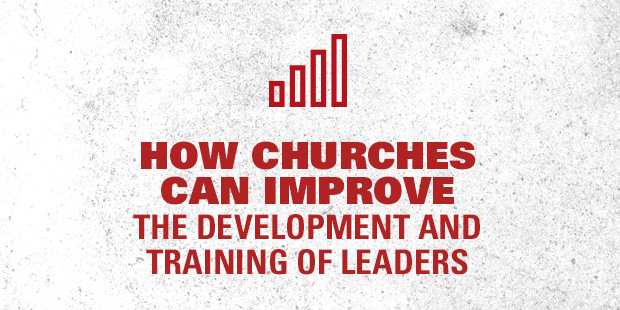
How Churches Can Improve the Development and Training of Leaders
Today, I’m excited to welcome Barnabas Piper. Barnabas writes weekly for Worldmag.com, regularly reviews books for Leadership Journal, and blogs at BarnabasPiper.com. His first book, The Pastor’s Kid: Finding Your Own Faith and Identity will release in the summer of 2014 from David C. Cook. He lives in the Nashville area with his wife and two daughters.
Barnabas recently joined the Ministry Grid team at LifeWay, an online platform that helps churches in the area of leadership. Since Ministry Grid is launching in November, I thought it would be good to have Barnabas join me for a conversation in how churches can improve the development and training of leaders.
Trevin Wax: First off, Barnabas, tell us what your role is with Ministry Grid?
Barnabas Piper: I am the content marketing strategist for the Ministry Grid team. I work under Todd Adkins who is the Director of Leadership Development for Lifeway and the head of our team. My primary responsibilities are social media, the Ministry Grid blog, and developing news ways to use and share the wealth of content (video and written) we have.
Trevin Wax: In my experience, it seems like many pastors and church leaders think in terms of programs, and then they look for volunteers who can run the programs. Why is it important to train the people who serve in our churches, and how can this overcome an overly programmatic mindset for ministry?
Barnabas Piper: Programs can serve as valuable frameworks within churches, creating avenues for people to serve. But just as often they can limit a person’s effectiveness, kind of the way a menu tells what you can order at a restaurant but also limits your choices. Churches that have created a limited “menu” have essentially ruled out many people from using the unique gifts God has given them.
By emphasizing training – the development of gifts and calling to serve – churches are moving toward becoming a healthy body. Instead of having a limited number of pieces doing most of the work, it becomes a healthy whole with each person doing what God designed him or her to do.
Ministry Grid exists to help churches train every person and to do away with that limited menu of ministry options so that the whole church becomes a true body serving one another and ultimately serving Christ.
Trevin Wax: One of the aspects of Ministry Grid that encourages me is this idea of equipping people to do the work of the ministry. Too many times, we think of ministry as something the pastor does for the congregation, rather than something the pastor equips the congregation to do. What role does training play in this “equipping” function of the pastor?
Barnabas Piper: Ministry Grid is built with Ephesians 4:11-13 as the foundation. We believe God gave leaders in the church unique gifts and callings so that they could raise up, train, and equip the entire body of the church. That is when the church is healthiest – when everyone is equipped to serve and is doing so rather than standing idly by while the staff, elders, and deacons do all the heavy lifting.
Leaders should always be developing leaders rather than bearing the burden of responsibility on their own. Most leaders likely want to do this, and we are here to give them a means to do it well. The training aspect is putting the tools in the toolboxes and teaching people how to use them.
Many in the church would love to serve but don’t know how. Many aren’t sure what they’re good at. Training gives them the theological and practical resources needed to serve well and grow more.
Trevin Wax: What are the biggest obstacles to training leaders today? Time? Finances?
Barnabas Piper: If you asked pastors this question the majority would rattle off four answers in short order: time, money, lack of a system, or they just don’t know how. In preparing to launch Ministry Grid, our team consulted with hundreds of pastors, and these four obstacles came up over and over again no matter the size of the church, denomination, or demographics.
Trevin Wax: How does Ministry Grid seek to overcome some of these obstacles and assist pastors in training?
Barnabas Piper: Ministry Grid is a platform that is customizable for churches. This means we have eased the burden of creating a system by putting pieces in place that a church can rearrange to their needs without starting from scratch. It allows ministry leaders to assign training, track progress, and interact with trainees about what they’re learning. Since it is web based, users can watch the training videos any time that is convenient for them.
We have engaged hundreds of godly, skilled practitioners to give us training in areas of ministry from the parking lot to the pulpit. Each of them has proven his or ability and faithfulness and offers quality instruction in particular areas of ministry. This means individual churches and church leaders don’t need all the answers. However, if a church has training material they especially like or have developed themselves they can upload that and share or assign it through the Ministry Grid platform.
Cost is based on the average weekly attendance of the church and is an annual subscription. It comes out just a few cents per month per person in the church to make training available to all of them. Our goal is to make this accessible to churches of all sizes, and the pricing is scaled accordingly.
Trevin Wax: What’s the best way to get more information on Ministry Grid and how it might fit into your local congregation?
Barnabas Piper: Visit MinistryGrid.com. You can set up a free account that will allow you to preview the site and see a couple hundred videos for free. If you like what you see you can purchase a subscription for your church and gain access to over 1,800 videos, along with the full platform and learning management system.

Tags: Ministry Grid, Staff Development, Training, Trevin Wax, Volunteer Development













